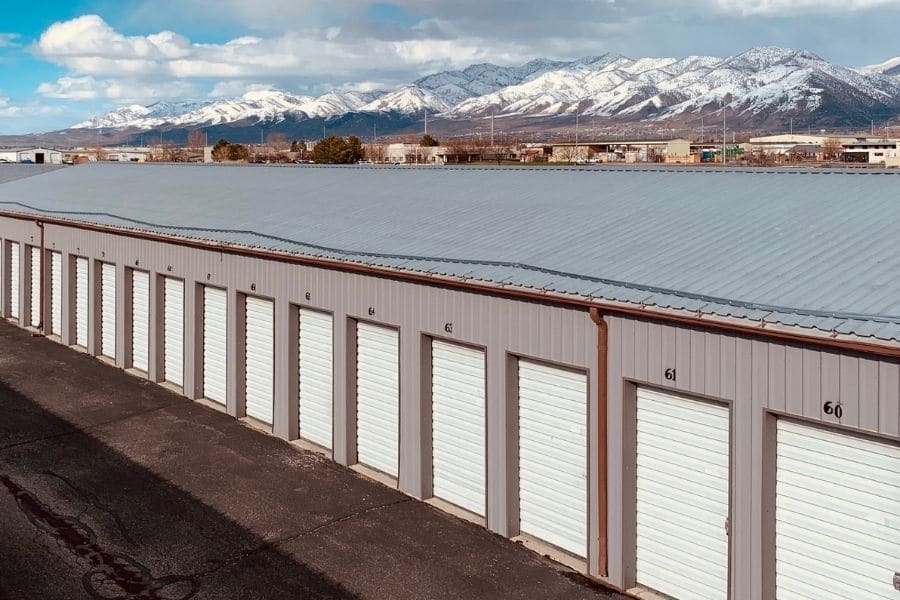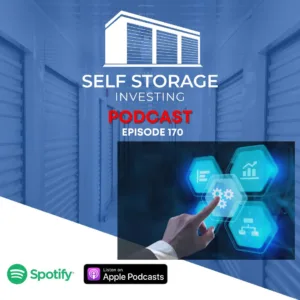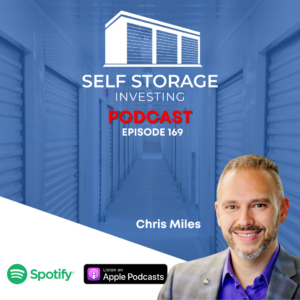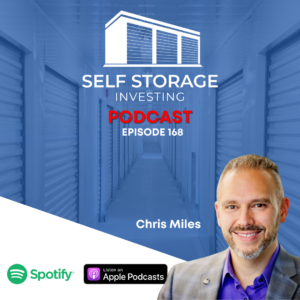This week on The Self-Storage Podcast, Scott Meyers sits down with Terry Campbell to discuss the financial and lending side of the self-storage world. Terry is the executive vice president of Live Oak, a small business banking company that provides funds to those in the agriculture, funeral home, self-storage, and service contractor industries.
Before taking the helm of Live Oak’s small business lending team, he spent several years in the self-storage industry, starting as an estimator and moving all the way up to becoming the executive vice president of operations. He also served as a co-owner of a large self-storage facility in Northern Virginia for several years in the early 2000s. Needless to say, Terry brought wealth and knowledge with him to his second podcast interview with Scott.
The last time Terry was on our show was right before the COVID-19 pandemic forced the majority of the country to shut down. We started our conversation by talking about what that meant in terms of how difficult it was to get a loan and why banks needed to protect themselves against an uncertain financial future. Terry shared some fascinating inside knowledge about the ways banks operate that you are not going to want to miss.
One of the things that Terry touched upon was how the self-storage industry was left largely unaffected by the global pandemic. It is worth noting that the industry showed similar strength and perseverance during the 2008 financial crisis and the recession that followed. It’s clear that while no industry is completely immune to an economic downturn, self-storage has positioned itself as a recession-resistant business.
When coming up with business ideas that would be considered recession-proof, your list will undoubtedly include the obvious businesses, such as healthcare, information technology, and auto repair. However, you may be surprised to learn that the storage industry and owning a self-storage facility are also near the top of the list. However, if you think about why this is the case, it actually makes a lot of sense.
It’s important to understand the devastating domino effect a recession has on employment. First, people who incorporate jobs get laid off. Then, because those people now have less disposable income to spend, individuals in industries such as retail and hospitality get their hours cut, which means they now have less money to spend on things. It’s a vicious cycle that leads to high unemployment and low bank accounts.

As a result, people are forced to make significant life changes. People who can no longer afford to pay rent are forced to move in with family and friends. Families who cannot pay their mortgage have to sell their house and suddenly downsize with little warning. In both scenarios, the movers need somewhere to quickly store their belongings until they get back on their feet. This is where the self-storage industry benefits.
While the COVID-19 pandemic has been crippling for some industries, it has been highly beneficial to the self-storage industry. As mentioned above, those who lost their jobs are now looking for a place to store their belongings as they adjust their living arrangements. However, the coronavirus pandemic has also impacted college students who were living abroad. With very little notice, these students were forced to leave their dorm buildings and find somewhere to store their furniture and other belongings.
Even those who are able to stay in their residences during the pandemic have had to reimagine how they use their space. That spare room that was once being used for storage has now been turned into a gym or home office. That basement that was overflowing with boxes may have had to be cleared out to make way for children and their brand new at-home activities. All of those boxes have to be stored somewhere until the pandemic has reached its conclusion.
Location is key when determining whether or not to invest in a self-storage facility. For example, being near a college will always be a safe bet. Even when the pandemic is over, college students will still need a place to store their belongings for three or four months over the summer. Another prime location is right outside a busy city. Ideally, you want to find a location that is close enough to attract city residents who are moving to the suburbs but still want their belongings close by.
Since the self-storage industry has proved itself to be recession-proof, those trying to enter it may find it easier to obtain a small business loan. Remember, a bank is only likely to issue a loan if they can reasonably guarantee it will be paid back in a timely manner. Therefore, someone trying to open a restaurant may struggle to secure a loan due to the current volatile and unsure future of the industry. However, someone trying to purchase a self-storage facility will likely have an easier time getting approved because they can point to the way the industry has thrived in the last two economic recessions.
How to Contact Terry
We hope you enjoyed our conversation with Terry Campbell. For more information on the services Terry and his team offer, we invite you to visit his official website.
About Self Storage Investing
Self Storage Investing is focused on helping people grow their wealth through investing in self-storage. To learn more about this recession-proof type of passive income stream and how you can get started today, we invite you to fill out this brief form, and a member of our expert team will be in touch!



